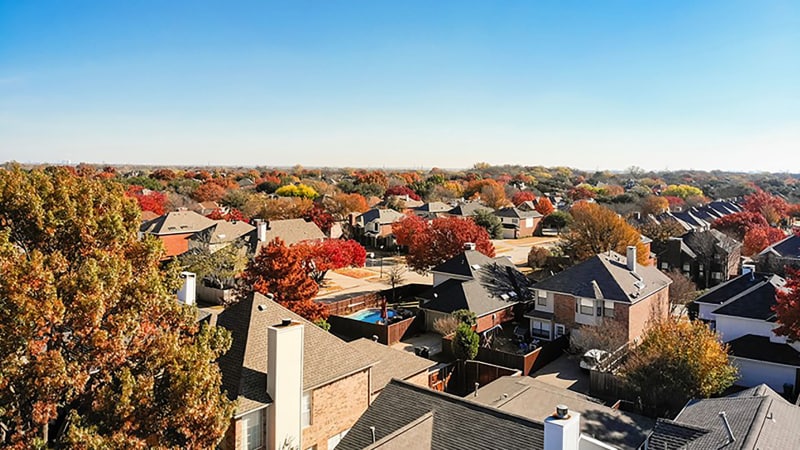Should you buy your second home first?

In 2015, New Yorker Jason Martin was finally ready to buy a house, but properties in the city were beyond his price range. Instead of ditching his rental and taking on a high-cost mortgage in the city, he decided to buy a second home in a less expensive area.
"I wanted to have a place that I could work in," says the designer and photographer, "I realized that I wouldn't be able to ever afford that, reasonably close to the city."
Martin is one of a growing number of urbanites who are maintaining their rental status in cities and buying a second home for work or play. It's an option that can offer a host of benefits—including equity and even rental income—without the overwhelming cost of buying a home in a high-priced city or suburb.
Starting the search
When he decided to buy, Martin's first goal was to find properties that were reasonably convenient to his home but were still within his budget. "I got a map and drew an arc around New York City at about what I figured to be the three-hour drive range," he says.
Next, he sought out properties that were less expensive and had few high-end amenities. The savings, he decided, would give him more money to renovate his new home and make it his own. Over the following months, he spent his weekends outside the city, checking out potential properties.
Like Martin, Los Angeles renter Daniel Higbee considered buying a secondary home as an investment in his long-term plans. His work regularly takes him to Nashville, and moving there eventually, felt like a natural fit. However, rising property values sped up his plans and in 2016 he purchased a home in Music City, U.S.A.
"I knew Nashville was starting to boom, and I thought, 'I better get in now before it gets really crazy,'" he says.
Martin had a similar experience. While the upstate New York real estate market was cool by city standards, he still faced fierce competition from other buyers. "I fell in love with five different houses I put offers on, and ended up getting outbid for cash with all of them," he says. Eventually, however, he found his dream house.
To rent or not to rent
Many secondary homeowners—including Higbee—rent out their new homes to help cover the cost of their mortgage payments. And if you plan to rent out your home, it pays to do your research. While it's possible to find rental and vacation listings virtually everywhere on earth, some areas are less likely to draw renters, and the hot rental property you imagined owning could languish. Be sure to look at comparable properties in the area, and keep an eye on local attractions or events that could draw potential tourists and renters.
One solution is finding a long-term tenant. Having a renter in the house at all times provides a steady stream of income and means there is someone present in case of unexpected problems. If you're interested in going this route, start by researching local realtors and management companies who can handle the day-to-day difficulties of managing your property and finding renters.
When in doubt, look to your friend network. "I was going to get a management company to handle the rent payments and any repairs," Higbee says. But, thanks to social media connections, he was able to find an acquaintance to rent the house and take on basic maintenance tasks. "When I did come into town, I was able to come over and see the place, hang out with my friends, and I knew they were taking good care of it."
Before you decide to rent, it's smart to look at local laws and restrictions. Many communities don't want short-term tenants cycling through, and some even have strict laws and high fines to limit temporary rentals. For that matter, depending on how you rent out your second home, it may be classified as an investment property and not a second home. This could lead to differences in your taxes and mortgage.
Sustainability
Before you buy a secondary home, it's important to weigh the costs and rewards of jumping into the property market. Instagram is full of inspiring before-and-after photos of country homes and yards, but would-be buyers should consider how much work they're willing to put into a house that won't be their main space and potential appreciation.
Mike Wise, Executive Director Senior Lending Manager at JP Morgan Chase, says that planning is key."I think [home ownership] is a wonderful idea—if you take everything into account and have a specific plan from folks you trust to help you put it together."
It's also important to consider whether your second home makes financial sense over the long term. That means looking at long-term fluctuations in your income, the increases in expenses that will come with paying two sets of bills, and whether you're ready for unpleasant surprises. "There are a ton of things that pop out of the woodwork," says Wise. "If you don't have a rainy day fund, you can really get into trouble."
On the other hand, the commitment of home ownership brings with it the chance to expand your horizons, establish roots in a community, and take advantage of options that may have been out of reach without the extra security of home equity.
For Martin, home ownership has been exciting. "I am now doing battle with the four elements in their most primal form," he says. On the night he closed, three months ago, he stayed in his new home. "It is exhilarating. I'm on this weird kind of journey of discovery."



